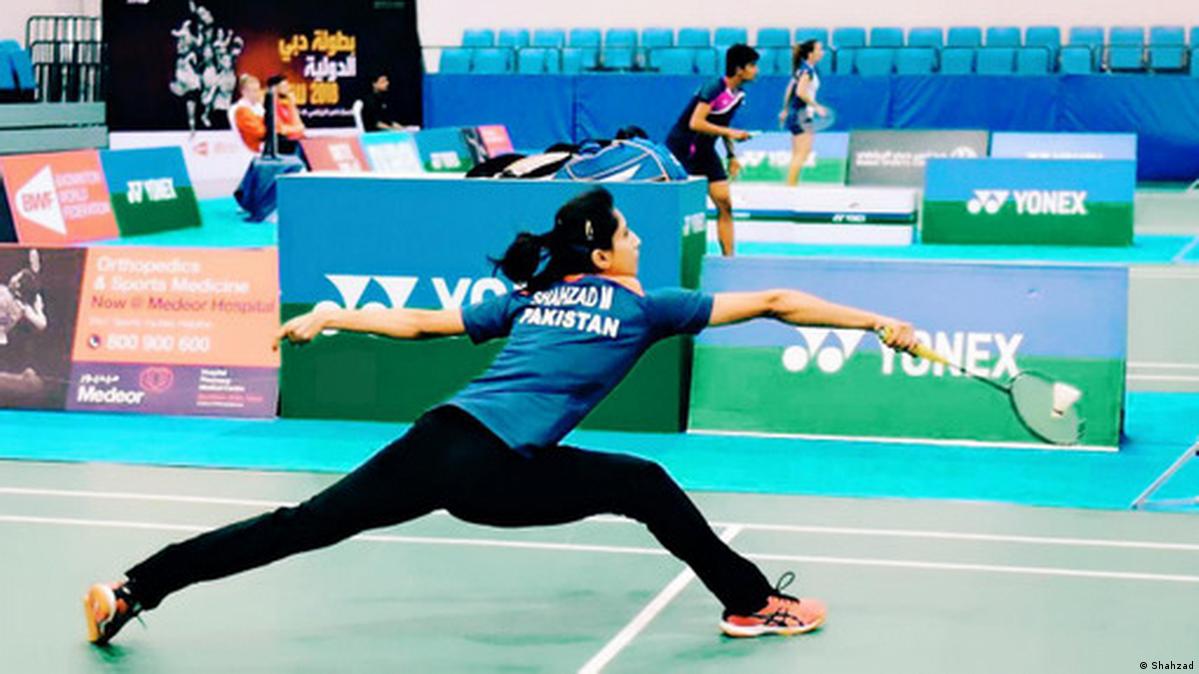
Gender discrimination is deeply ingrained in Pakistani society, impacting the lives of women in every sector. And sports is no exception to it. About 90 percent of women in Pakistan are cut off from any sports or physical activities thanks to gender discrimination arising out of social, economic, and political factors.[1] Moreover, those women who dared to pursue sports as a career were often subjected to sexual harassment.
Researcher Muhammad Adnan said Pakistani sportswomen and their achievements are greeted with jeers instead of cheers in a male-oriented environment. “Women’s participation in sports has traditionally been low due to cultural and social barriers and a lack of access to facilities and opportunities,” he said. “One of the major problems facing gender equality in sports in Pakistan is the lack of media coverage. Women’s sports are often overshadowed by men’s sports.”
Squash player Noreena Shams said she struggled for eight years to make sports her career. “It’s a very different situation for a woman without male backing as sports is so male-dominated, people don’t take you seriously and try to take advantage,” she said.[2]
Miao Wang, a professor at the Beijing University of Technology, said religious and cultural obstacles were crucial factors for barring Pakistani women from sports participation. In her research, Wang highlighted other important factors such as insufficiently skilled physical education teachers, inadequate government funds, inadequate facilities, and a lack of physical education classes as extracurricular activities.[3]
“The main obstacles facing Pakistani female students in terms of sports participation are religious and cultural limitations, a lack of permission from parents, and a lack of sports facilities and equipment,” Wang said said. There are several accounts of Pakistani women athletes that narrate stories of unsupportive government and families, lack of sports and transportation facilities, public shaming or humiliation, and threats to their safety, among others.
Global non-profit Soccer Without Borders said women’s participation in sports is still widely considered unacceptable or even disgraceful in Pakistan. “There are seldom few teams or clubs available for girls interested in athletics, and for those that do exist, girls face incredible barriers to participation. We even met one professional athlete whose family shunned her for years for wearing shorts in public,” it said.[4]
Zulaikha Karim, a researcher at Sindh University, said sexism existed on an organizational basis in Pakistan, which adversely affected women in sports association leadership roles. “Women as athletes and officials of sport governance face gender equity issues. Women in sport leadership posts are lacking because sport is a sex institution and because all processes function according to hegemonic masculine standards,” she said.[5]
Many sportswomen in Pakistan said they faced sexual remarks from the public as well as sexual harassment. Sana Mahmud, former captain of women’s basketball and football teams, said “I remember this goalkeeper of mine would really get worried because there would be people standing behind her on the goal, and you know, whisper or shout out rude remarks to her which were sexual in nature and were suggestive in nature, and they were just there to harass her simply.”[6]
Shams said many female peers shared their ordeal of demanding sexual favours by the officials in sports bodies and federations. “It disgusts me that I have to sit in meetings with men who I know have asked for sexual favours from other sportswomen, young girls really,” she said.[7]
If any sportswoman tries to raise her voice against sexism, her career comes to an end, said sports commentator Leena Aziz. “There is a lot of harassment that women in sports and sports broadcasting go through. There’s been suicides because women suffer silently or if they complain, their careers end,” she said.[8] Aziz criticised the Islamabad government for failing to safeguard women in sports.
Sport in Pakistan is still regarded as a masculine activity and the role of patriarchy and male-dominant factors continued to impact the lives of sportswomen, said Ayesha Gul, a researcher at Baluchistan’s University Quetta. “The role of women in policy-making as well as in the decision-making process is not seen anywhere so the future of sportswomen in Pakistan seems very insecure,” she said.[9]
[1] https://journals.sagepub.com/doi/10.1177/21582440221138771?icid=int.sj-abstract.citing-articles.2
[2] https://www.dw.com/en/pakistan-female-athletes-defy-odds-in-a-patriarchal-society/a-57846399
[3] https://journals.sagepub.com/doi/10.1177/21582440221138771?icid=int.sj-abstract.citing-articles.2
[4] https://www.soccerwithoutborders.org/post/pakistan-exchange
[5] https://journal.suit.edu.pk/index.php/spark/article/view/918/640
[6] https://www.voanews.com/a/arts-culture_international-womens-day-highlights-gender-inequality-womens-athletics/6185443.html
[7] https://www.dw.com/en/pakistan-female-athletes-defy-odds-in-a-patriarchal-society/a-57846399
[8] https://www.dw.com/en/pakistan-female-athletes-defy-odds-in-a-patriarchal-society/a-57846399
[9] https://clinicalsocialwork.eu/wp-content/uploads/2019/12/07-Gul.pdf






